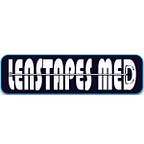Congenital Abnormalities or birth defects — Diagnoses, Preconception Care, and Treatment Options
The miracle of birth brings with it the possibility of congenital abnormalities, often referred to as birth defects. These conditions, arising from various factors, can impact a child’s health and development. Understanding how these anomalies are diagnosed, the significance of preconception examinations, available treatment options, and the crucial aspects of caring for affected infants are pivotal in navigating this intricate landscape of healthcare.
Diagnosis of Birth Defects
Diagnosing birth defects encompasses a spectrum of approaches, both pre and postnatal. Advanced medical technologies allow the detection of certain anomalies before birth through procedures like ultrasound, amniocentesis, and chronic villus sampling (CVS). These methods offer vital insights into potential issues like Down syndrome and spina bifida, empowering parents with information to emotionally prepare and plan for their child’s care needs.
Postnatally, physical examinations and specialized blood tests facilitate the identification of birth defects soon after a baby’s arrival. This combination of pre and postnatal assessments helps healthcare professionals tailor care and interventions promptly.
What are the major causes of congenital abnormalities?
Congenital abnormalities have various causes, including genetic factors, environmental influences, and certain infections during pregnancy. Genetic mutations or chromosomal abnormalities play a significant role, as do environmental factors like exposure to toxins, drugs, or alcohol during fetal development. Infections such as rubella, toxoplasmosis, or Zika virus contracted by the mother during pregnancy can also contribute to congenital anomalies. Additionally, factors like maternal health, nutrition, and lifestyle choices can impact fetal development, potentially leading to congenital abnormalities. Understanding and addressing these causes are vital for prevention and early intervention.
Significance of Preconception Examinations
A preconception examination serves as a cornerstone in ensuring a healthy pregnancy journey. It involves a comprehensive evaluation aimed at understanding overall health and identifying potential risk factors that might complicate pregnancy. Here are key components of a preconception examination:
Family Medical History
Assessing the medical history of both biological parents’ aids in uncovering hereditary conditions or medical issues that might influence the child’s health.
Genetic Testing
Pre-pregnancy genetic tests enable the detection of potential genetic disorders, empowering proactive steps to mitigate risks.
Personal Medical History
Evaluating an individual’s medical conditions, previous surgeries, and pregnancy-related complications helps in tailoring care plans.
Vaccination Status
Checking immunity to diseases like rubella, vital in preventing miscarriages or birth defects, underscores the importance of vaccinations before conception.
Infection Screening
Identifying and treating infections that could harm both the mother and fetus is pivotal for ensuring a healthy pregnancy.
Treatment Options for Birth Defects
While most birth defects aren’t curable, managing symptoms and offering specialized care are vital. However, certain conditions might have treatment options:
Gene Therapy
In cases where genes are missing or defective, gene therapy steps in to replace or rectify these anomalies. Severe combined immunodeficiency diseases (SCID) exemplify a rare condition where gene therapy has shown promise.
Enzyme Replacement Therapy
Addressing genetic defects involves replacing missing or defective enzymes. Conditions like Gaucher disease have seen advancements through enzyme replacement therapy.
Prenatal Treatments
Early diagnosis allows for prenatal treatments like surgeries to address specific congenital malformations, such as urinary tract blockages or rare lung tumors, enhancing the chances of a healthier outcome for the baby.
Which disease is congenital?
Congenital diseases are conditions present at birth, stemming from genetic factors, infections, or environmental influences during fetal development. These encompass a wide range of health issues, such as heart defects, Down syndrome, cleft lip or palate, and spina bifida, among others. These conditions might arise due to genetic mutations, exposure to toxins, or infections contracted by the mother during pregnancy. They can impact various systems in the body, leading to lifelong challenges for affected individuals. Early detection and appropriate management are crucial in addressing congenital diseases and improving outcomes.
Care for Birth Defects: The Role of Specialized Centers
Specialized fetal care centers, like the Maternal Fetal Care Center (MFCC), play a pivotal role in managing complex fetal anomalies. These centers offer comprehensive support and management for intricate conditions. Pioneering interventions, like in utero cardiac treatments, showcase the innovative strides these centers are making in caring for congenital abnormalities. Advancements in treating conditions like congenital diaphragmatic hernia reflect the dedication and progress of these specialized facilities.
Conclusion
Understanding congenital abnormalities involves a multidimensional approach encompassing diagnosis, preconception care, treatment options, and specialized care facilities. Empowering parents with information, offering proactive healthcare strategies, and leveraging advancements in medical science are crucial in providing the best possible care for infants affected by birth defects. As science continues to advance, the prospects for managing and treating these anomalies grow, offering hope and possibilities for affected families.
By prioritizing awareness, proactive healthcare, and ongoing research, society can strive to offer comprehensive support and care for those impacted by congenital abnormalities, ensuring a brighter and healthier future for generations to come.
